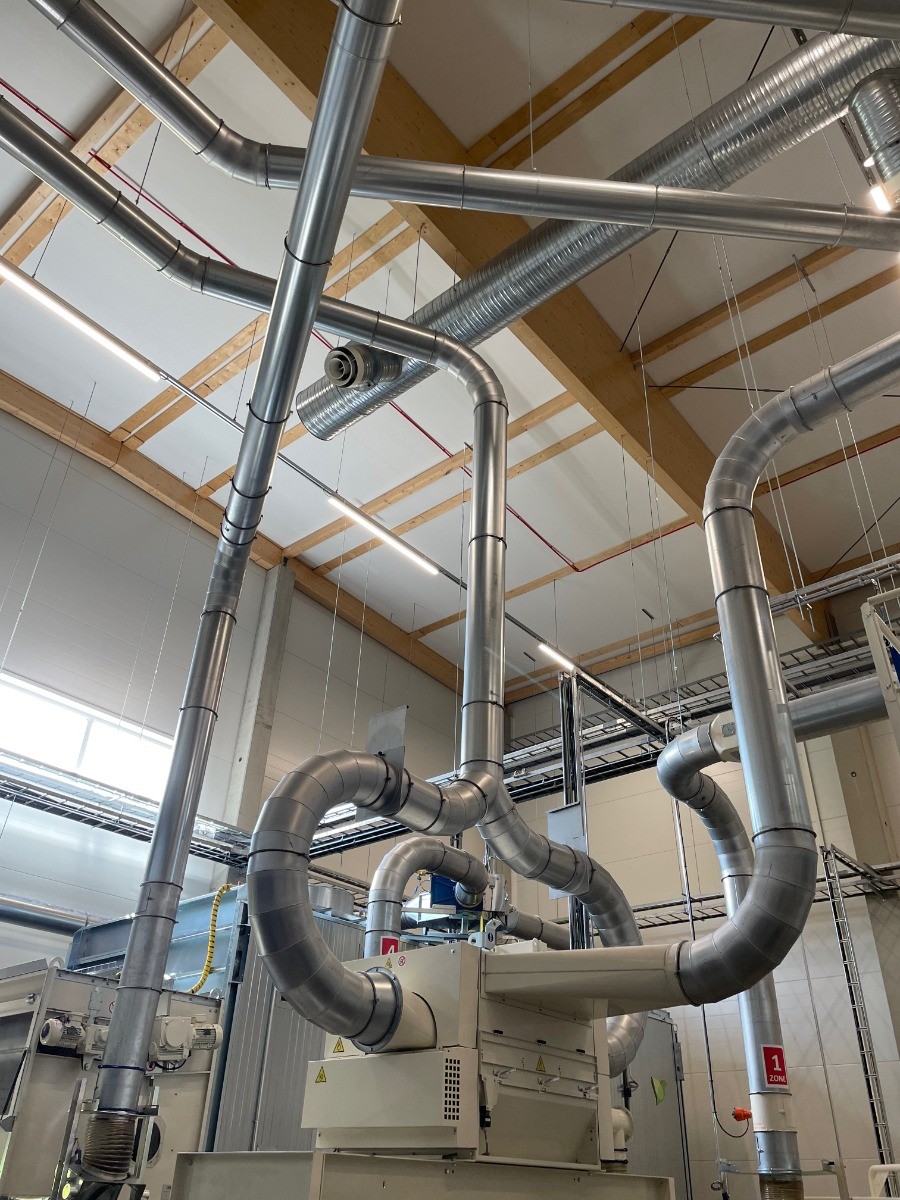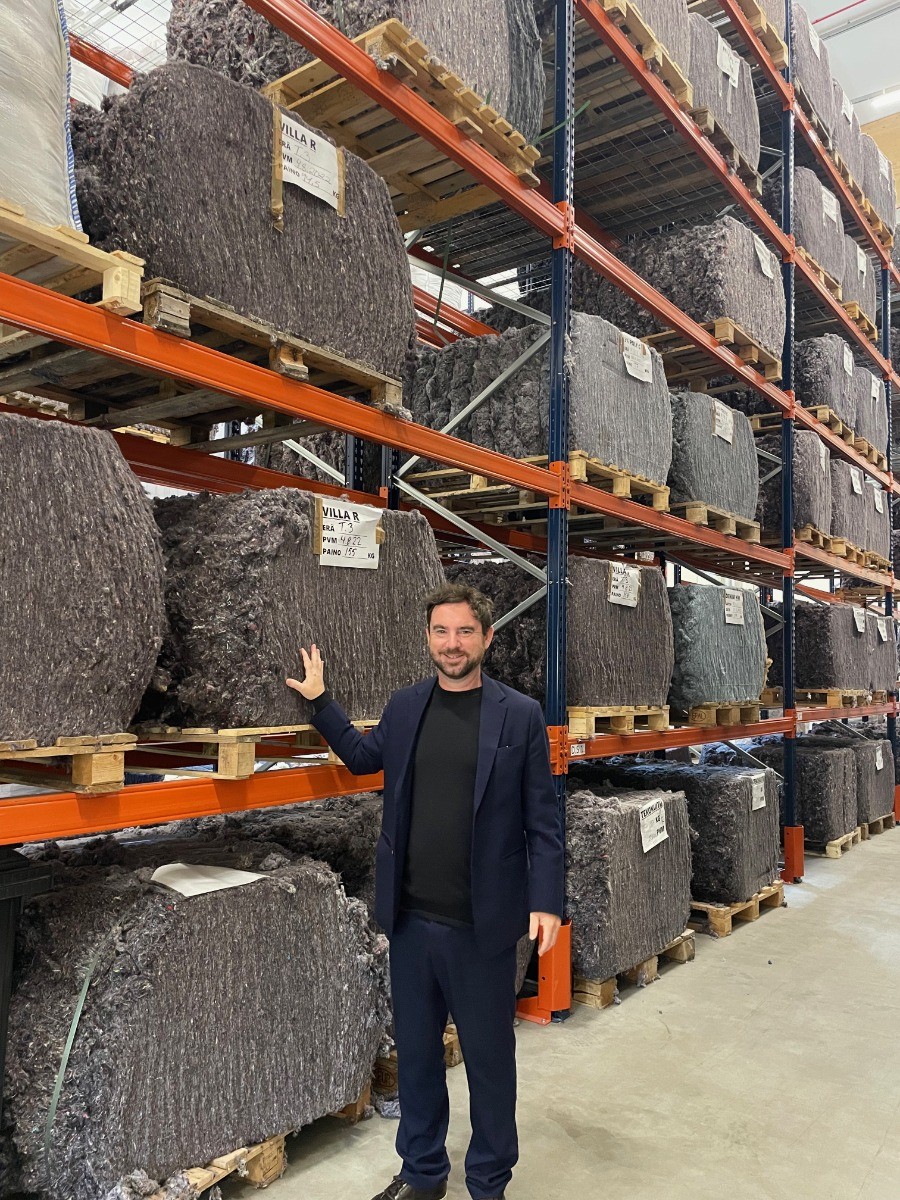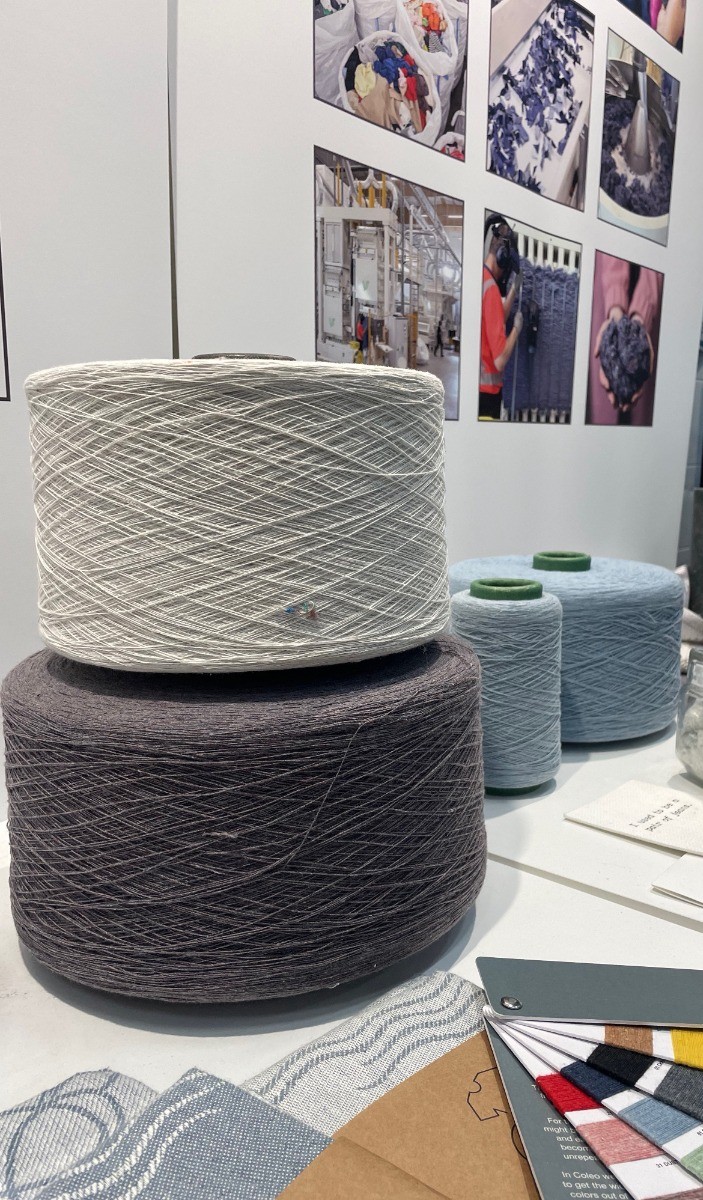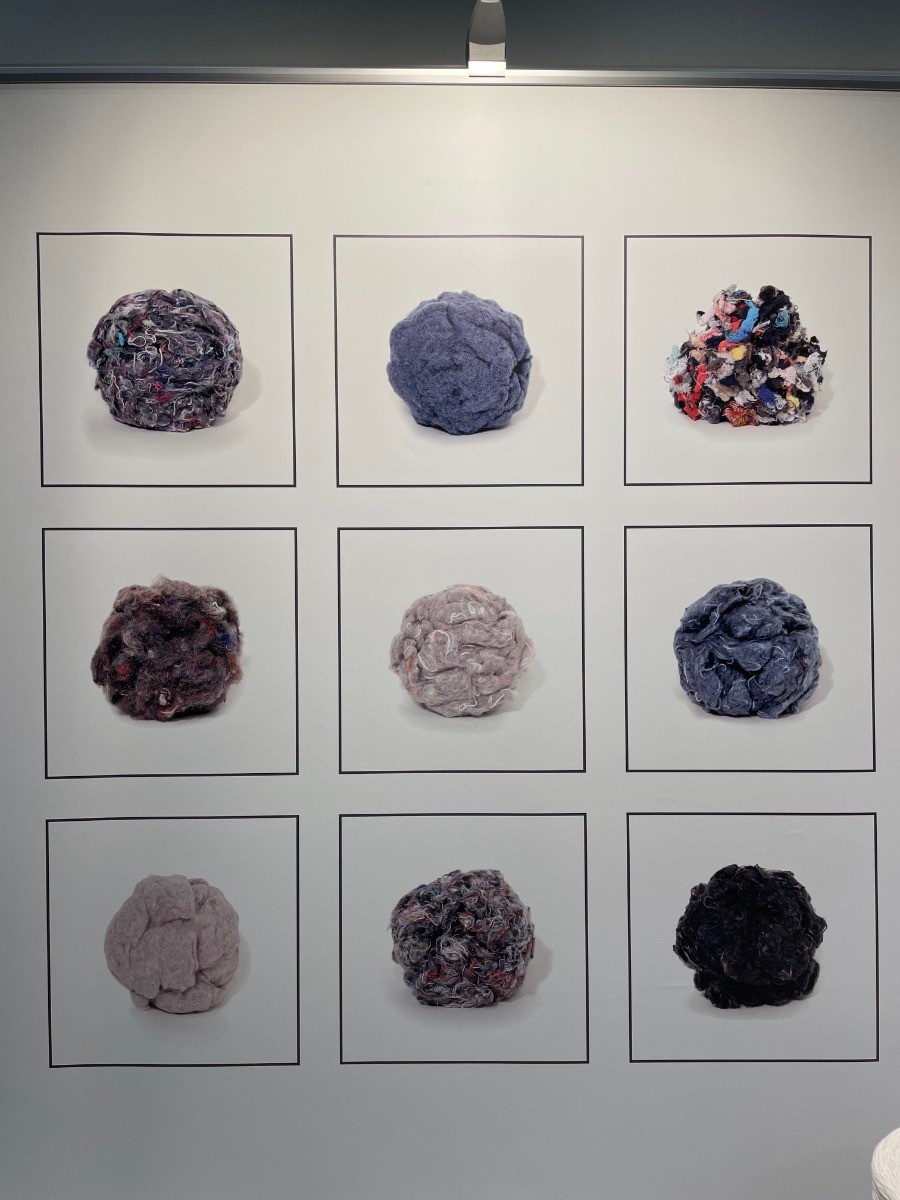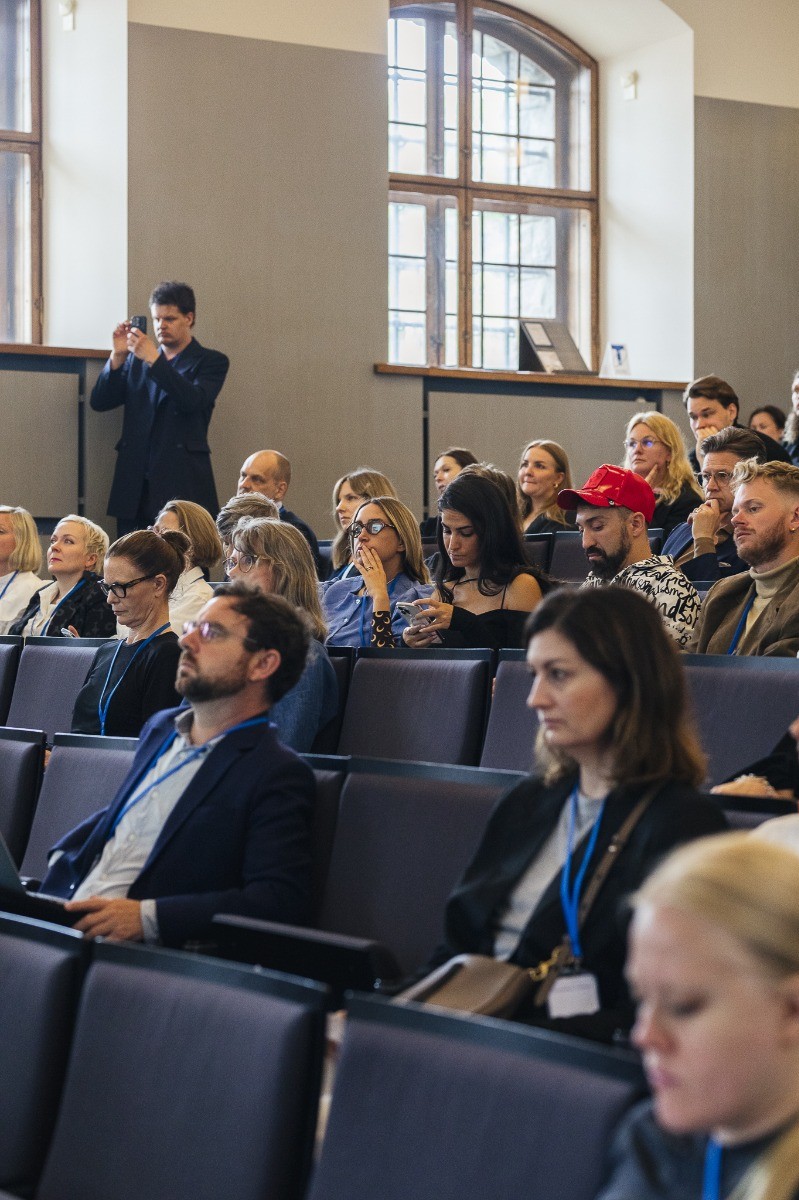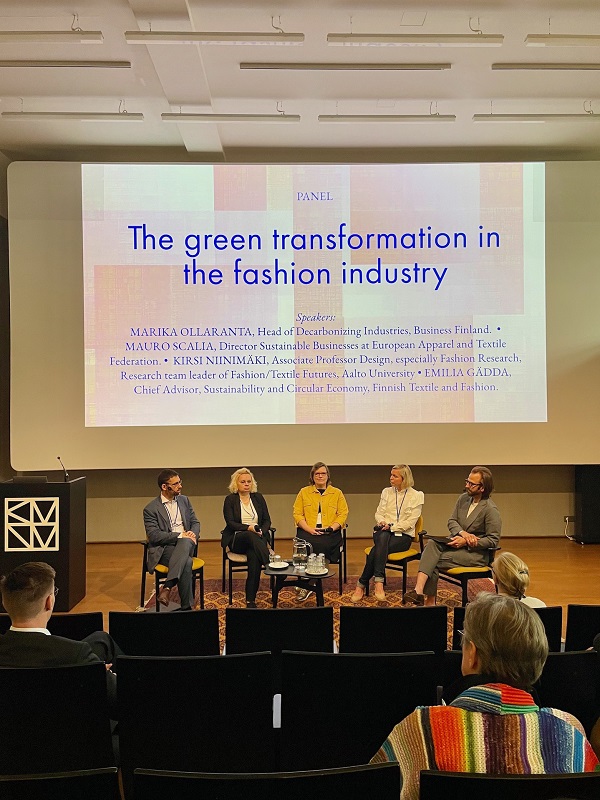
We have already given you a little insight, but today we would like to give you more information about our trip to Finland.
Ben had the privilege to attend the "Transformation Conference 2023 - Connecting The Fashion Industry Through Innovation & Creativity" in Helsinki and is excited about the progressive developments in Finland and Sweden in the field of circular textile recycling.
Innovative approaches and political commitment have made these countries pioneers. New fibres such as Renewcell™ or Infinna™, which consist of 100% recycled textile fibres, are already in use there.
Particularly impressive is the development of an infrastructure that makes it possible to no longer dispose of textiles in landfills, but to recycle them 100%.
Ben had the opportunity on site to see how the textile recycling plant at Lounais-Suomen Jätehuolto and Rester in Paimio works and was simply overwhelmed by the progress and innovation that is taking place.
|
The modern textile recycling plant |
The 100% recycled textile fibres that are ready for spinning |
Important issue: The European Union has reacted!
In Europe, an average of 26 kg of textiles are bought per person per year, of which 11 kg are thrown away. An alarming 87% of used clothing is incinerated or ends up in landfills. These figures illustrate the enormous scale of the textile industry, which is moving far too fast.
The European Union has responded to this problem with its EU Strategy for Sustainable and Recyclable Textiles. The aim of this strategy is to create harmonised legislation and strengthen sustainability in the textile sector. In addition to new requirements for the design of textiles, there is a special focus on the handling of used textiles.
From 2025 onwards, a nationwide separate collection of used clothing and other textiles is to be introduced throughout Europe to enable more efficient reuse and high-quality recycling.
The textile recycling plants of Lounais-Suomen Jätehuolto and Rester in Paimio, mentioned above, receive all the used textiles collected from households in Finland and transform them into new fibres. These projects are true beacons to be emulated and we hope that other EU countries will follow this fantastic example.
|
Wonderful recycled yarns |
Recycled Textile Yarn Variations |
Forging alliances and driving innovation:
The Transformation Conference was an invaluable platform for fostering collaboration and innovation between Finnish and Swedishbut also external partners, including Lebenskleidung. It provided a unique opportunity for companies like ours, known for their commitment to sustainable practices, to meet and exchange with peers and organisations. The aim of the conference was to forge strong alliances that will drive green change in the industry.
Topics and engaging discussions:
Throughout the conference, there were several themes that resonated with participants. One of these themes was the changing value system in the fashion ecosystem. We explored how consumer values are impacting the industry and learned what strategies brands can adopt to adapt to these changing expectations. This dialogue reinforced Lebenskleidung's commitment to transparency, ethical production and sustainable sourcing.
|
Transformation Conference Helsinki 2023 |
Transformation Conference Helsinki 2023 |
Another captivating theme at the conference was Nordic innovations in materials and technologies. Breakthrough innovations in sustainable materials and technologies from Finland, Sweden and the entire Nordic region were presented. It was inspiring to see the progress that has been made in developing eco-friendly alternatives and innovative production techniques that reduce environmental impact.
Marketing and communication in fashion technology were also exciting sessions at the conference. Effective strategies for promoting and communicating fashion tech innovations were highlighted. We learned about the power of storytelling and the importance of branding to engage consumers and raise awareness of sustainable fashion.
The conference also explored how technology can be used to improve sustainability practices in the fashion industry. It was fascinating to see the progress being made in circular solutions and the positive impact they have on reducing waste.
Conclusion: Participating in the 2023 Transformation Conference was an important journey for us at Lebenskleidung. It provided a space for collaboration, innovation and knowledge sharing and allowed us to make meaningful connections and gain valuable insights. The conference served as a catalyst to accelerate the fashion industry's transition to sustainability. We return home inspired and motivated and ready to continue our commitment to ethical practices, transparency and sustainable fashion.
It is encouraging to see that Finland and Sweden have already made significant progress in the field of circular textile recycling. Innovative approaches and political commitment have led to these countries becoming pioneers in the sector. The introduction of separate collection of end-of-life textiles across Europe from 2025 is another important step in the right direction.
The Transformation Conference has shown us that collaboration and sharing of best practices is crucial to make the fashion industry more sustainable. We are proud to be part of this movement and will continue to promote a circular economy, ethical production and transparent practices. The future of fashion is in our hands and together we can create a greener and more sustainable industry.

